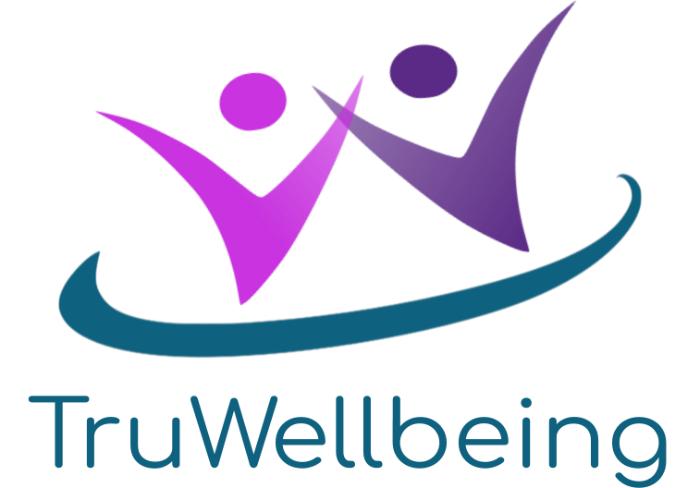4 PILLARS OF TRUWELLBEING – MIND
Wellbeing isn’t just eating well, going to the gym and thinking happy thoughts. Each of the individual the elements contribute to wellbeing and they also rely on each other. For example, in order to make lasting change in your life, you will benefit from a positive mental attitude which is easier to manage when we have a sense of purpose and we are active.
MIND
Mental health
Being able to recognise when you are struggling with low mood, anxiety, stress or depression is the key factor in making changes in your life. It is hard to admit, that you not perfect but society is changing. It is ok to say you’re not ok, you’re not alone – Nearly half (43.4%) of adults think that they have had a diagnosable mental health condition at some point in their life (35.2% of men and 51.2% of women).
That doesn’t mean you can’t do something about it. We all have ways of seeing the world or negative, intrusive inner thoughts that don’t help us. We can challenge these so that we can find better ways of thinking or speaking to help us that is positive and helpful.
Managing emotions
Emotional Wellbeing is the ability to understand ourselves and respond to the challenges life can bring. When we acknowledge, share and respond to our feelings in a productive manner we can create a sense of balance. Sometimes we can feel overwhelmed by emotions and lose connection to their value. During our lives, we develop ways to respond to our emotions, feelings and external events. If we touch a hot oven, it hurts and we learn not to touch it again. It can be the same with our feelings, if something hurts and we feel it’s out of our control, we might learn to surpress our emotions, or get angry/frustrated instead. Some people eat, drink alcohol or take drugs to help distract or give pleasure when we don’t like the feelings we have. By reconnecting and recognising our feelings and emotions we are then empowered to respond in a different and more productive way.
Coping mechanisms
We all develop ways to cope with life; some are healthy, some aren’t. When we develop coping mechanisms to deal with events, feelings or thoughts that keep us in a cycle of negative inner thoughts we feel trapped.
For example, at work your boss is asking you to do more than you think is fair, you might get angry or frustrated. You can suck it up and begrudgingly try to do the best you are willing to but eventually some thing will have to give. You will likely get physically ill, exhausted or depressed. This isn’t a helpful coping mechanism. There are always options open to you (you might not like the options, but they are still options, nonetheless)
Another one is that whenever you try to stand up for what you want with a partner it always ends up being a drama, over time you have learnt it is just easier to put up and shut up. This is not a healthy coping mechanism.
We you take time to seriously explore your options you realise you have the power to make changes in yourself and the way you view your life.
Mindfulness
When your head is filled with thoughts it is hard to know what you’re thinking. Often anxiety occurs when we feel we have no control over our thoughts (which may be predominantly negative) By learning to slow down our thoughts and break them down into feelings and values we can then understand and respond differently. We can learn to control our thoughts through mindfulness. All our intentions are positive, but just like a puppy let loose in the front room at Christmas, it doesn’t mean to be destructive but it just can’t help itself. We can teach our mind some ground rules and if needs be, give it some quite time to be calm.
Anxiety often arises from a conflict from the left side of the brain which is logical and trying to make sense of everything and the right side which is creative and can see the worse case scenario. By slowing down the inner chatter we can then make sense of our world in a rational and controlled way.
Inner voice and thoughts
We all have an inner cheerleader, which can say positive and supportive things to ourselves. We also have an inner gremlin that can be downright mean or negative or just generally unhelpful. The difficult thing is that both want the best for us. The inner gremlin has been born from experience and has learnt to protect you by telling you not to get your hopes up, think the worse etc. When we understand how the inner gremlin is trying to help we can find better ways to satisfy that same intention.
What we focus on is what we will feel. If we focus on being depressed, not being able to change, accepting things the way they are – that is exactly where we will stay. In order to feel positive, we need to focus on positive things. i.e. I know it’s only a matter of time until I start feeling better about myself. We can make very subtle shifts to the way we speak to ourselves that will snowball into a big positive change in our outlook and understanding of ourselves.



